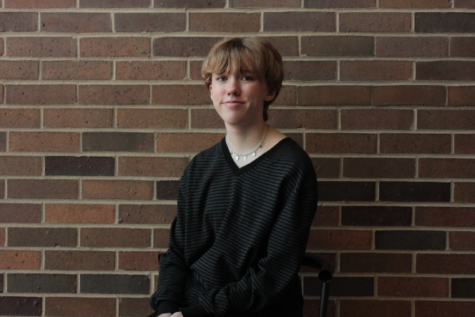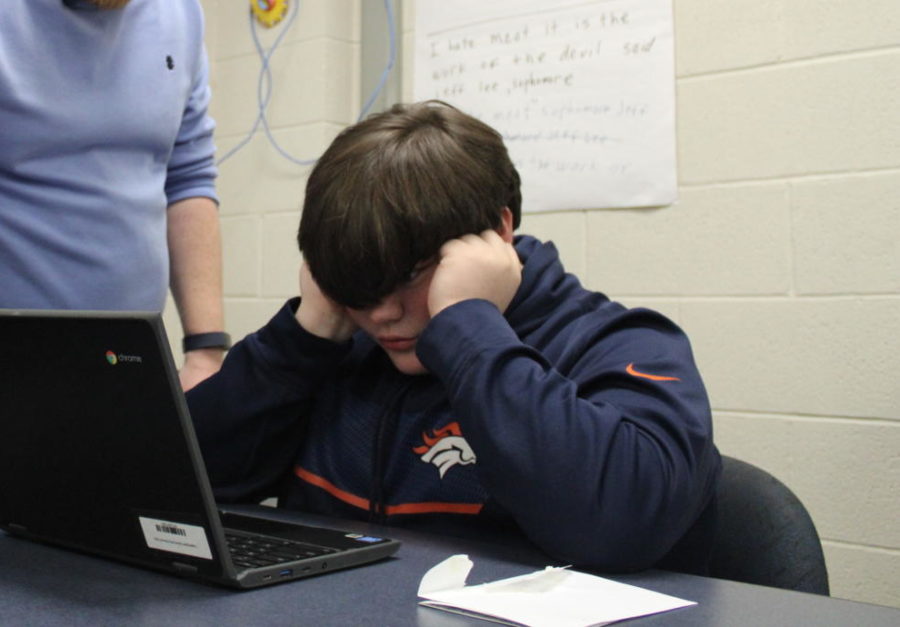Why the American Education System is Failing
The Washington Post reported in 2016 that the no-homework policy being set in place has taken the stress out of students’ afternoons and evenings.
According to the U.S. Department of Health and Surfaces, one in five students ages 12-17 has some sort of mental health problem that stems from school. Examples include stress, anxiety, bullying, family problems, depression, learning disability, and alcohol and substance abuse. Some mental health problems, such as self-harm and suicide, are on the rise, especially among youths.
According to Healthline, spending too much time on homework can prevent students from meeting their developmental needs or cultivating other critical life skills. Studying is arguably worse because it’s technically a choice, but students are seen as lazy if they don’t, which eventually leads to self-deprecating behavior when they can’t bring themselves to actually do any studying. It’s an endless cycle of inhumane expectations. Not to mention that some students can’t study because of jobs or other duties and tasks outside of school.
Schools could begin to fix this by simply being more lenient about deadlines. If something comes up in a student’s personal life, they should have the right to an extension at the very least.
One missing assignment can set a student back enough to decrease their chances at awards or increase their chances to get in trouble at home. Not being able to complete one assignment on time is something that has happened to every student at one point or another, and yet it can be detrimental to a grade in the long term depending on the timing of the missing assignment.
If the missing assignment was counted as missing at a random point in the middle of the semester, the assignment can be made up in time for the grade to be solidified. However, if the missing assignment is closer to the end of the nine weeks, or the end of the semester—which, in this hypothetical situation, it most likely would be, considering that’s when a lot of classes start packing in work to prepare for finals—it could bring down a grade enough to solidify the final grade going a whole letter grade down.
The letter grading system is setting students up for failure. If a student doesn’t have a 4.0 GPA or straight A’s, they have been taught to see themself as less intelligent or unworthy of gratification even if they tried their absolute hardest.
Most of the time, no matter how much time a student spends studying, doing homework, or doing the best that they can during class, it still doesn’t end up being enough unless the student is interested in the topic, or is able to learn with the teaching style of that particular teacher for that particular subject. In order to get students engaged, teachers would have to cater to each individual student, not only to help them learn, but so the teachers will see them as more than just a student and as a person that is going through life with unique experiences, thoughts, and struggles of their own.
However, it’s not possible for teachers to do that because they each have so many students in their classes. According to Inside Indiana Business, the Indiana State Department of Education says there are approximately 1,700 vacant teaching positions in Indiana, and another 1,300 non-teaching jobs listed on its online job portal.
A teacher’s job is to teach kids and prepare them for life itself. Yet, according to IndyStar, they get paid an average of $50,000 per year, which is $10,000 less than it would be for one person to live comfortably in the United States, let alone a single parent with children, or a sole provider for a family.
Teachers should also be allowed more sick days so that they have the ability to perform better at their jobs.
What the teachers are required to teach is information that is useless in the long run. High school should be used as a means of teaching youths how to thrive once they are living on their own. Basic comprehension and math skills are important, but a lot of what is taught after middle school isn’t useful unless a student is pursuing a career having to do with the subject at hand.
The environment also affects students. If the classroom in which students are learning is actively harming a student’s ability to learn rather than helping them, something might need to be reconsidered.
Fluorescent lights are detrimental to learning. According to Playground Professionals, fluorescent lighting is actually counterproductive to students because it causes bodily stress, hyperactivity, and anxiety among students, especially after being exposed to them for long periods of time. Long periods of time such as five-day weeks, every week, for full seven-hour school days, not to mention the bonus negative effects that affect students (and teachers) with autism or ADHD.
Schools should instead switch to LED lighting, which creates a light just as bright as fluorescent lights but produces cool temperature light between 4100K and 5000K. These lights can change the behavior of students with hyperactivity issues because they are more calming than any other kind of lighting.
The reason many schools pay for and use fluorescent lighting is because of how cost-efficient it is. They also have a longer lifespan than other forms of lighting, so schools have decided to use them because they won’t burn up near the end of the day during sports practices, or other after-school activities. Generally, the health of the students and staff at a school should be more important than cutting back on spending for the schools that students will practically grow up in.
The amount of money spent can also be regulated by incorporating more natural light into classrooms. In classrooms without windows, this isn’t always possible, but when it is possible, opening the blinds can help students learn better and reduce the amount of stress that results from the schoolwork itself without the help of the school’s technical issues.
Your donation will support the student journalists of Logansport High School. Your contribution will allow us to purchase equipment and cover our annual website hosting costs.

Freshman Chelsee Osburn is part of the class of 2026, and it is her first year on the Magpie staff. She’s a reporter and enjoys reading and writing about...

Gretchen Prifogle is a senior at LHS and is currently serving as one of the Multimedia Editors. She served as the Photo Editor during her sophomore and...






